Do you realize the effects a good safety record can have on your business? How can others tell if you have a good safety record?
The answers to these questions can be found in your company’s EMR, a safety metric that is stashed away in the company’s profile which has a large impact on your bottom line.
What is an EMR?
An Experience Modification Rate (EMR) is a “Key Performance Indicator (KPI)” that insurers use to determine the likelihood that a company will experience a worker’s compensation claim. An above average EMR will drive premiums up. Adversely, a low EMR keeps insurance rates low. But wait, there’ more…….
Your company’s EMR doesn’t only impact your insurance premiums. It is the only consistent and measurable metric of safety on a job site used by both government and private owners when considering bids, and it can have a tremendous impact throughout the bidding process.
How is Your EMR Calculated?
Calculating your company’s EMR can involve some extensive calculations that, for the purposes of this article, we will leave up to the insurers.
In a nutshell, it compares your specific payroll and loss history to other businesses in the same industry and of like-size. This is compared to a calculation of expected losses for a company conducting similar work within the same state and modified for the size of the employer.
If you have an average rate among similar businesses of similar size, then your EMR would be 1.0. If your history is 10% better than average, your EMR would be .90 or 10% worse at 1.10.
How is Your EMR affecting your Bottom Line?
Even though your EMR is calculated for insurance purposes and has a direct and measurable impact on your company’s premiums, there are other ways it impacts your bottom line.
1. Most Importantly, Your Employees Are Being Injured On Your Watch
- That safety metric (EMR) that is stashed away in your profile, represents actual people that are being impacted by injury within your company.
- Injuries that are preventable.
- Impacted lives, that are preventable.
- Aside from the massive human costs by these injuries, these injuries are costing your company time and money that your competitors, with a lower EMR, aren’t spending.
2. Losing Large Contracts
- By having a significantly higher EMR than your competitors, you put yourself in an extreme disadvantage with other considerations being equal.
- Or worse, your competitors may be submitting higher bid prices, but still winning the bid due to their excellent EMR.
One Final Question….
How Can You Improve Your EMR?
Improving your EMR is a direct result of improving and changing your company’s mind-set and culture in regards to safety. In other words, IMPROVE YOUR SAFETY, IMPROVE YOUR EMR.
The easy answer is to avoid hazardous situations and prevent accidents that result in injuries, claims and losses. Naturally, this is a lot “easier said than done”. With the right assistance, you can improve in all of these areas.
STC can provide:
COMPREHENSIVE safety solutions and provide an innovative and customized approach that stays on top of initiatives, responsibilities, and most importantly, the employees’ health and safety for their best quality of life.
PROACTIVE deployment of industry best practices, efficiencies and proven processes. We establish leading indicators in an interactive cloud-based system that targets behaviors and trends and ultimately reduces compliance issues and injuries.
RESPONSIVE We leverage powerful technology tools so you can make informed business decisions based on your company’s needs. Our team is committed to real time reporting for a fast response to unsafe situations.
Safety does pay off, whether it’s the safety of your employees, the cost of your premiums, or winning the bids for the work you’re looking for.
With the right help, you can strengthen your bottom line ten-fold.



